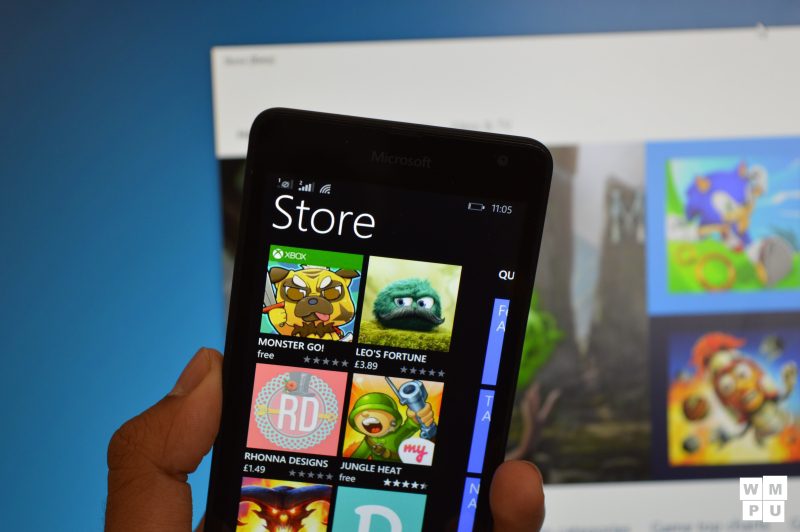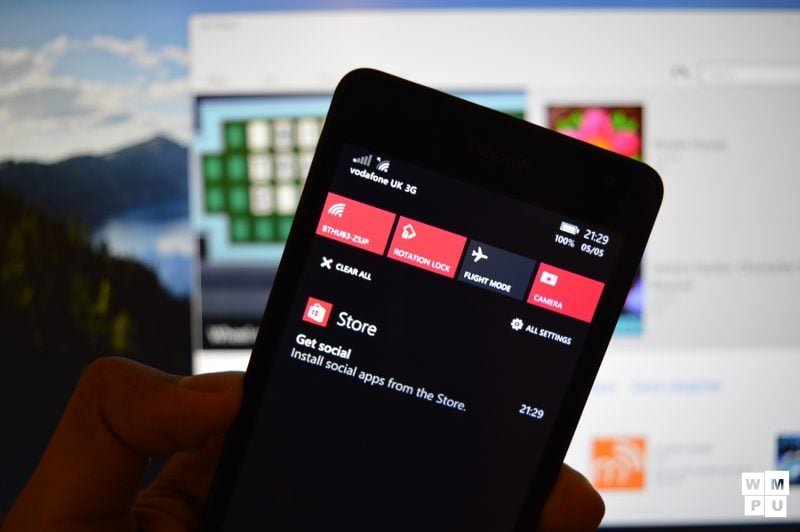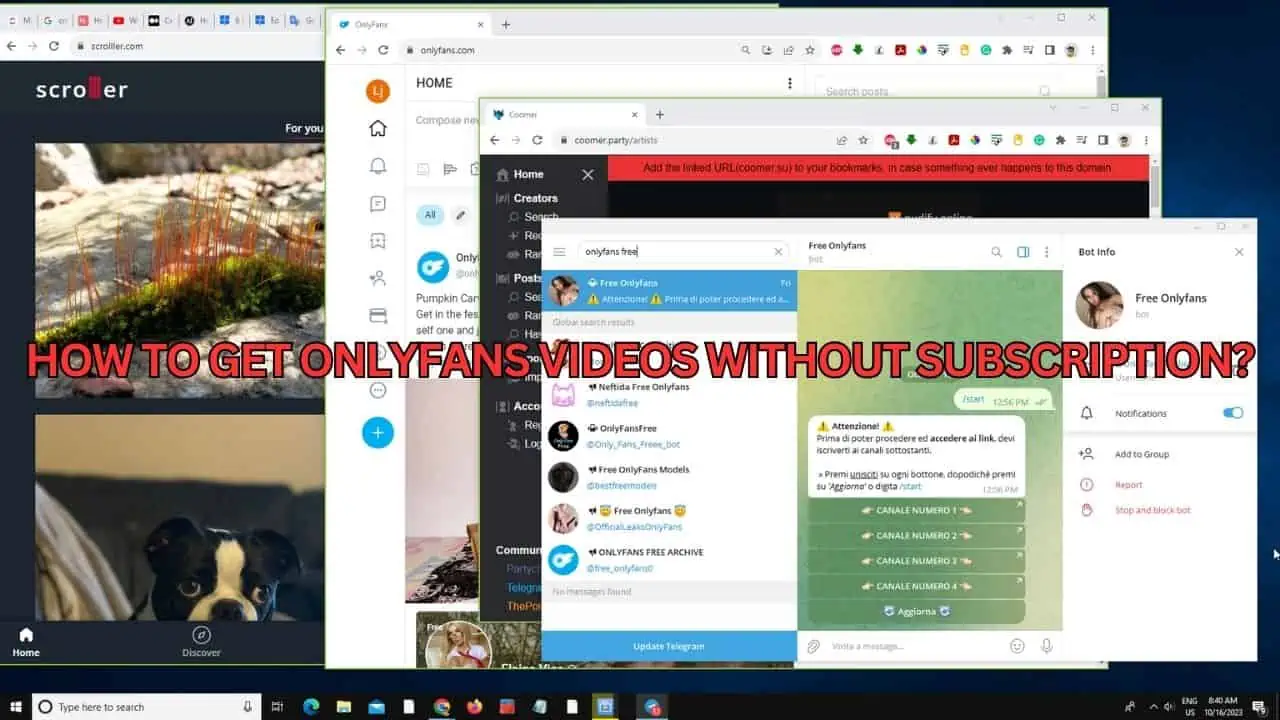The Windows Phone store: Breaking the chicken and egg cycle
5 min. read
Updated on
Read our disclosure page to find out how can you help MSPoweruser sustain the editorial team Read more


The Windows Phone app store is easy to dismiss for users. It has only over 400, 000 apps and lacks some big apps like Snapchat. As a consequence, it is easier to dismiss for developers as well, “there are fewer users” and therefore fewer reasons to develop quality apps on Windows Phone. Even apps which are here like Waze, Tumblr, Twitter and Instagram are basically in maintenance mode with some of these apps not seeing updates for years on end. For Microsoft to entice new developers, this cycle must be broken mentally with potential and present benefits for supporting Windows Phone.
First of all, its all a numbers game. Every WWDC, I/O or /Build/ Apple announces they have 1.2 million apps, Google announces they have 1.3 million and Microsoft announces they have 640, 000 apps. To the media, Apple and Google’s numbers are bigger and a sign of success and so developers aim there. I will not minced words, it is easy to gain success in the Play /Apple stores because of sheer user base. It is also far easier to fall into oblivion or even worse, never leave oblivion in those town stores because of the sheer number of apps in them. No matter how good you are, in a mature market, it is very plausible that you will met someone better who will already have filled the niche you want. Even worse, they may not be better but as a dev, you are too obscure to download. For Windows Phone, it is far easier. Create a decent app, and more often than not, you will get picked up .Here’s where Windows Phone comes in. it is easier for a good app to stand out on Windows Phone and Windows now than the latter two. Why? Sheer numbers. There are fewer good apps in the Windows Phone store at the moment than they are in the other two. Launch a new calendar app on Android or iOs, no one might care. Launch a good one on WP, the Windows focused tech blogs would pick it up, the Lumia team would tweet your app and you will have vastly more exposure than you would have had if you had ignored WP.
As the Windows Phone store grows and its users grow it makes sense that entering the Windows Phone store now as opposed to later would be strategically wise. Users will eventually settle into a pattern of using a certain number of apps and games and recommending that number. For example, ask a Windows Phone user about YouTube and you’d get MyTube, Metrotube and Tubecast. There are most likely more, but the Windows Phone user base has coalesced around those three. It is far easier to use a tried and trusted app than a new untested one as the reasoning goes. The second thing is that it would be harder to surface new cool apps as the number grows. Only those at the top of the rankings would be used, and only those at the top will get reviewed, keeping them at the top. Why should this prompt developers to release Windows Phone apps? Android and iOS both have one million apps, a new app that promises to change everything will languish with all the other apps that promise to change everything. A dev for a hip new startup, social network or whatever would be more likely to get a large user base and visibility for the reasons we gave above from targeting all three platforms than they would from targeting just the two largest. The larger two are well served, the former is an untapped market that grows every quarter. For software producers like Google who neglect Windows , they are merely training users of the OS to live without its products. Whether that is a good or bad thing depends on how fast the OS grows after Windows 10 launches.
However, quality is also important. To quote Microsoft’s guidelines here “Don’t attempt to cheat customers, the system or the ecosystem“. While not exactly fraudulent, releasing an half-baked app into the app store is in fact a way of cheating not only the ecosystem, but yourself as well. First impressions count, and people don’t like being taken for suckers. A developer could easly doom himself on the Windows Phone platform by making a terrible app and leaving it un-updated because he finds that no one (strangely enough) uses it. Surely Windows Phone users are so starved for apps that they would take a half-baked app over nothing. A prominent example of this would be Waze. The company recently responded to a Windows Phone user when asked about the topic of updates along the lines of “We’ll update it when people start using it”. Bearing in mind that the reason people don’t use it is because it is not updated, this answer is a so frightfully short-sighted and “ugh” in general. Looking at the quality of apps in the Windows store, I wonder how many developers feel the same way.
That is not to say there aren’t any disadvantages to being a Windows Phone app developer. The lack of users, a paltry(!) 60 – 80 million would make launching exclusively on Windows Phone for apps which depend on massive user uptake like social apps a death sentence. But that’s not the point of this article. To get rewards, you need to take risks. Too few developers have been taking risks on Windows Phone. Too few developers care about the quality of their Windows Phone apps. Many don’t believe the Windows store is worth taking a risk on. I believe that Windows Phone is big enough now* that when combined with the above reasons, developers should invest in it.
For users. whether the chicken or egg came first is irrelevant. They just want a fine omelette.
What do you think of the attractiveness of the Windows ecosystem. Make your voice heard in the comments below.











User forum
0 messages